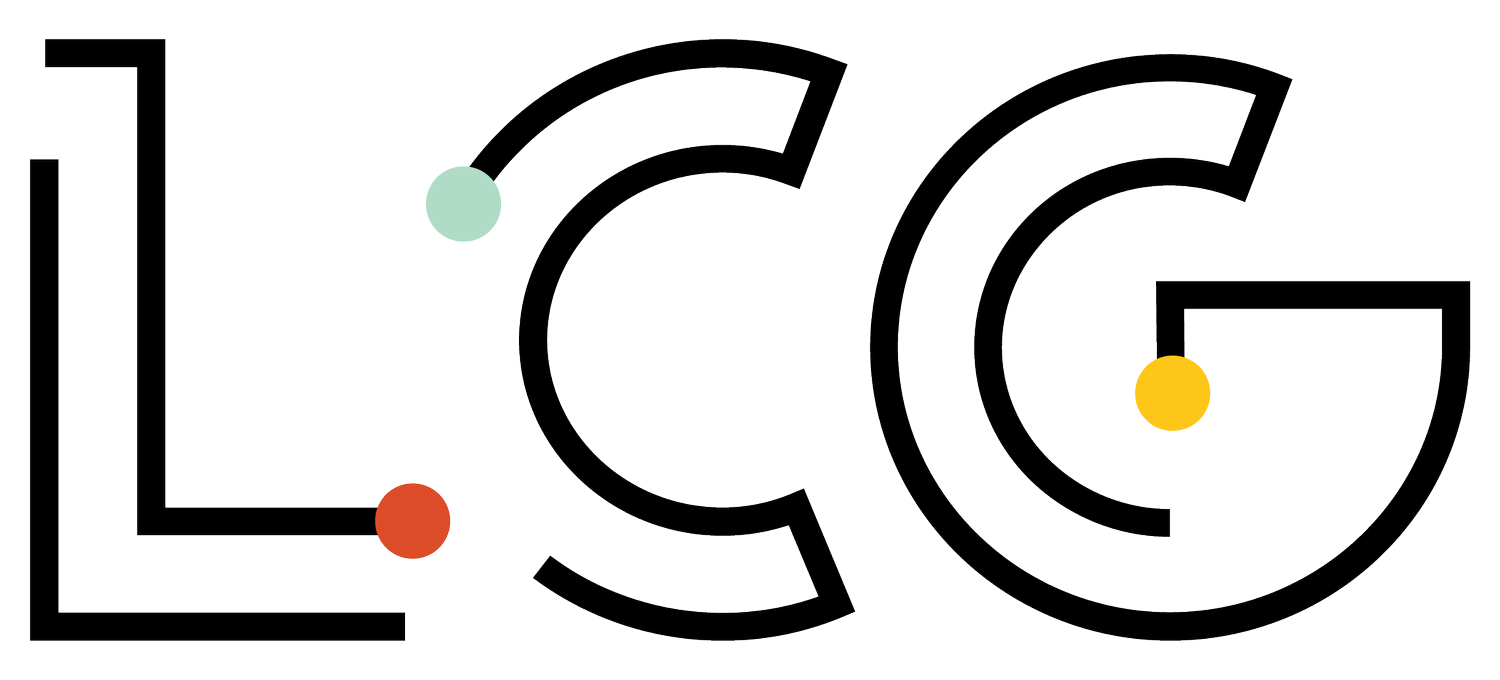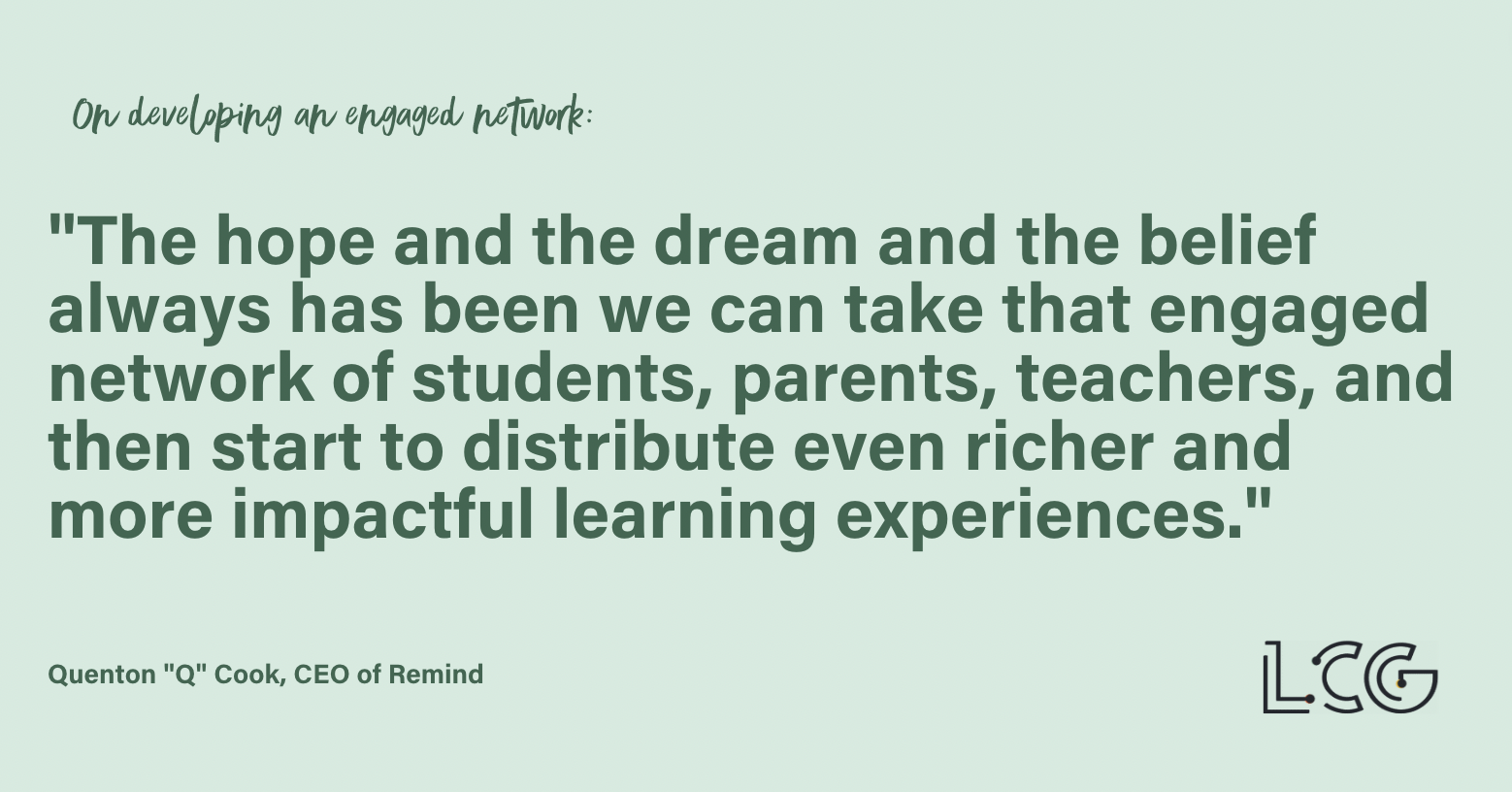Trends and events over the past few years have made it clear that timely school communications – teacher-to-students, teacher-to-parents, district-wide – are critical. Since 2011, Remind has worked toward meeting that need, and Quenton "Q" Cook, this mobile messaging platform's CEO, sits down with Elana Leoni, CEO of Leoni Consulting Group, to talk about all things SMS, the evolution of a technology, and the greater benefits of an efficient communication model within a school community.
Students Must Be Part Of The Conversation.
School communication used to be one-way; teachers sent students home with announcements and notes. When Remind started over a decade ago, Q recalls, online messaging still felt inappropriate for teacher-parent communication and was used primarily for news blasts.
"Even back then, we felt that's not the way to build full, supportive relationships. You need to be able to have a conversation, but it was the wedge that allowed a lot of folks to dip their toe in and start to feel safe with online communication."
Since then, we've embraced smartphones, messaging apps, and robust data plans. By the time COVID disrupted our world, families depended on instantaneous communication tools and platforms to support their students' disrupted education. While everyone knows about those eight-hour Zoom chats, Q observes how messaging addressed students' social experiences.
"Normally if you chart Remind usage, you can see a spike in the morning, and then a lull during the school day, because students are in class and in the physical school walls. During COVID, it was high the entire time. All day long, students were collaborating, messaging their teacher, and asking questions. Remind hopefully tunes into that next layer of communication that's still really high throughput to build those relationships."
That’s why, even as a messaging app, Remind remains highly focused on community relationships between students, parents and teachers. According to Q:
“The hope and the dream and the belief always has been we can take that engaged network of students, parents, teachers, and then start to distribute even richer and more impactful learning experiences."
Instantaneous Communication Is Critical To School Safety
As students return to their classrooms, Q sees those communication patterns normalizing. However, as a communication-focused EdTech company, Remind is facing another crisis: urgent messaging features for school safety. The traditional web interface, he explains, is no longer adequate.
"If an emergency happens, the last thing the principal needs to do is run back to their office to send out an emergency message. Being able to reach your entire school community from your pocket, to target that message, personalize it, send it out with the appropriate level of urgency, is really important and befitting the situation."
Quick pivoting requires a communication tree separating the school leaders' critical outgoing messages from the two-way communications of teachers coordinating with parents. As an example, Q cites a bomb scare that shut down an entire district. Teachers already collaborating with parents on Remind were more readily able to work out getting their students safely home.
"Kids take real human intervention, and you can't just scale it to thousands of people. You need teachers who can care for a small number of students at once in these emergency situations."
Addressing Inequity Is A District Responsibility
As communication patterns return to normal after the long lockdown, two years of remote education have surfaced inequities and unfinished learning. Like many EdTech companies, Remind hopes to be part of the solution. Q asks us:
"How can we enable the school to extend its resources? Students are struggling even more to get this extra support, and the pinnacle of that is high-dosage tutoring. It can be expensive, but it is proven to be the most effective way to accelerate and change learning outcomes. The onus has to be on the district to identify these students and support them in getting the help that they need. I think that the school buyer is definitely the right buyer to push forward this equity issue in schools."
Despite the market success of Remind, Q comes from a place of supporting education. He tells his new hires:
"You have to be here for the mission. You have to be here because you want to help educators build those relationships."
Here's the full transcript of Q’s podcast episode.
Good human alert: Remind is a client of LCG but this is not a sponsored episode. We just love showcasing passionate educators and EdTech folks making a difference. As always, all opinions are our own.
Resources Mentioned in this Episode:
All Things Remind
Remind, the company website introducing and explaining the product
Remind's urgent messaging feature, Q talks about how Remind can be useful for emergency communication
"COVID-19 Funding For School Districts,” Q mentions Remind's resource guide when addressing the issue of unfinished learning
Remind's Accessibility Statement, Q mentions the scale of support that Remind offers when discussing the future of school communications
Additional Reading
"The Power of the Positive Phone Call Home" by Elena Aguilar, Elana refers to this Edutopia blog in connection with teachers developing good relationships with students' families
"Navigating EdTech Purchasing, Procurement, and Pilots: A Conversation With Rayna (Yaker) Glumac," Elana refers to this LCG podcast in connection with how EdTech companies can fund product development
"How to Appreciate Teachers All Year Long: A Conversation with Teachers," Elana refers to this LCG podcast in encouraging educators to set boundaries
"Positive Teacher-Student Relationships Have Cascading Benefits" by Dr. Christi Bergin, Elana mentions this Network for Educator Effectiveness article as a helpful guide for communication
"Positive Teacher-Student Relationships May Lead to Better Teaching," Elana mentions this report of a February 2022 study by the Network for Educator Effectiveness as a helpful guide for communication
"3 Ways to Build Relationships in Person or Virtually" by Kimberley Hellerich, Elana mentions this Edutopia blog as a helpful guide for communication
"What Teens Say They Need, and How Schools Adjust" by Sarah Gonser, Elana mentions this Edutopia blog as a helpful guide for communication
"COVID-19 and education: The lingering effects of unfinished learning" by Emma Dorn, Bryan Hancock, Jimmy Sarakatsannis, and Ellen Viruleg, a McKinsey & Company article supporting Q's comments about education disruption during the pandemic
"High-Dosage Tutoring Is Effective, But Expensive. Ideas For Making It Work" by Stephen Sawchuk, an Education Week article supporting Q's reference to the power of this education strategy
"What Parents Need to Know About Learning Pods" by Dani Blum and Farah Miller, a New York Times article included here to support Elana and Q's discussion about the pandemic-era practice of learning pods
Definitions of Terms Used
SMS, Short Message Service as defined by TechTarget; included here to support Elana and Q's technical discussion of text messaging
LMS, Learning Management System as defined by Cypher Learning; included here to support Elana and Q's technical discussion about broader uses for a platform like Remind
CARES Act, the Coronavirus Aid, Relief, and Economic Security Act of 2020, a federal appropriations bill benefitting the education sector, among others; Q mentions this when discussing emergency funding sources
Title 1, federally funded program authorized under the Elementary and Secondary Education Act (ESEA) of 1965 as reauthorized by the Every Student Succeeds Act (ESSA) (link to CA Dept. of Ed version); Q mentions this when discussing emergency funding sources
ESSER Fund, Elementary and Secondary School Emergency Relief Fund; Q mentions this when discussing emergency funding sources
All Things Quenton
Elana Leoni, Host
Elana Leoni has dedicated the majority of her career to improving K-12 education. Prior to founding LCG, she spent eight years leading the marketing and community strategy for the George Lucas Educational Foundation where she grew Edutopia’s social media presence exponentially to reach over 20 million education change-makers every month.
Quenton “Q” Cook, Guest
Quenton "Q" Cook, a long-time Remind leader, became CEO at Remind in 2021 after serving as VP of Product Development for over 5 years. A graduate of New York University with a B.A. in computer science, he has worked in engineering, product, and design roles at a number of companies including Spotify, Facebook/Instagram, and PopSugar. Coming from a family of teachers, Q believes that EdTech was his logical next step.
About All Things Marketing and Education
What if marketing was judged solely by the level of value it brings to its audience? Welcome to All Things Marketing and Education, a podcast that lives at the intersection of marketing and you guessed it, education. Each week, Elana Leoni, CEO of Leoni Consulting Group, highlights innovative social media marketing, community-building, and content marketing strategies that can significantly increase reach, relationships, and revenue.
Rate, Like, and Subscribe
Let us know what you thought about this episode by rating and reviewing our podcast. Click here, scroll to the bottom, tap to rate with five stars, and select “Write a Review.” Then be sure to let us know what you loved most about the episode! Also, if you haven’t done so already, subscribe to the podcast to be notified when we have more content to share with you.





